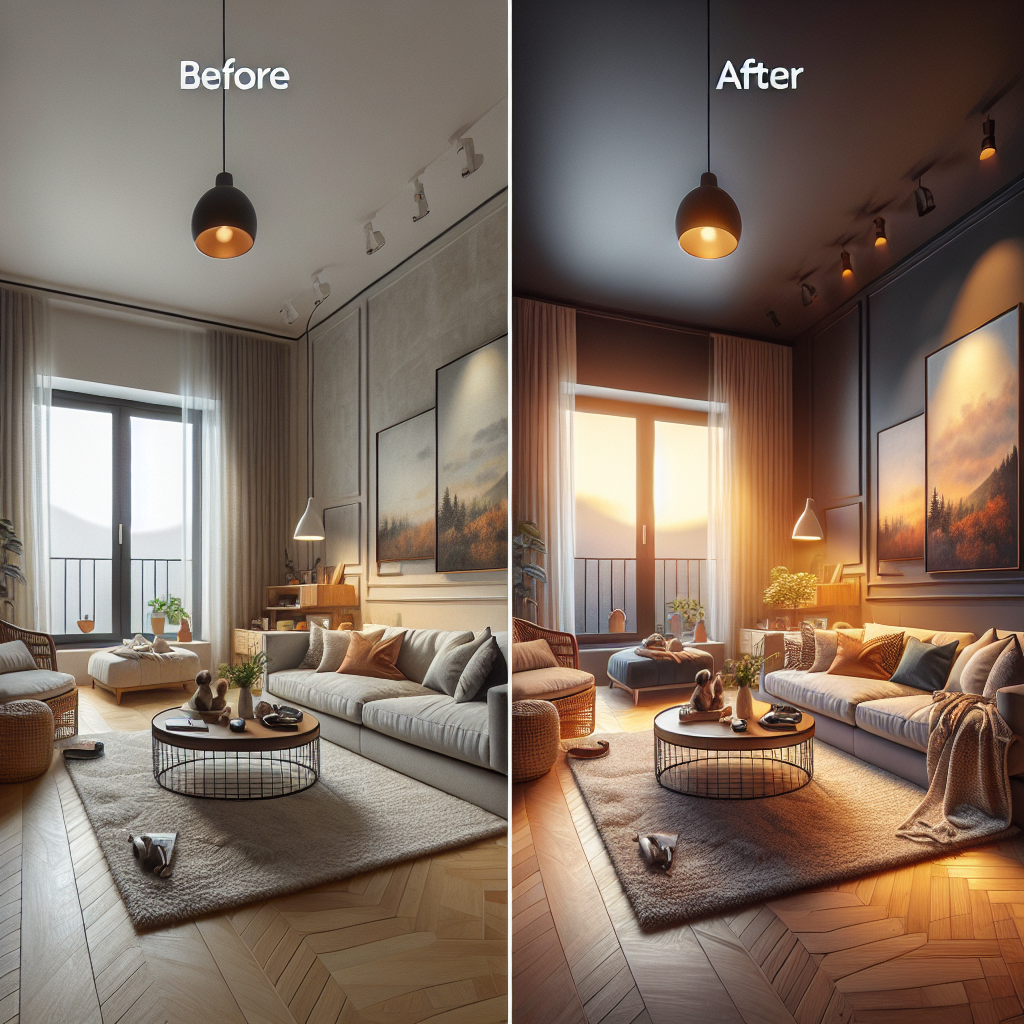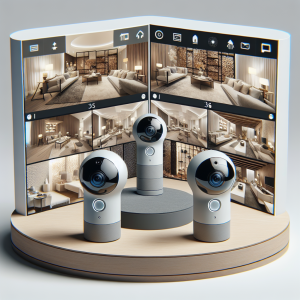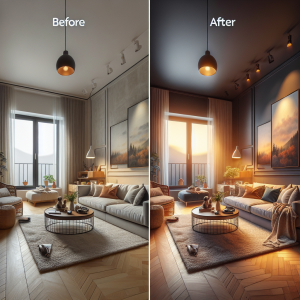Explore how virtual staging software transforms real estate marketing by allowing buyers to visualize dream homes efficiently, enhancing viewing experiences and accelerating sales.

This blog explores the transformative impact of virtual staging software on the real estate sector, highlighting how it enhances property marketing and sales processes. Emphasizing its cost efficiency and versatility, the blog covers virtual staging’s ability to furnish homes in diverse styles and facilitate interactive virtual tours that significantly improve buyer engagement. Additionally, it touches on ethical considerations and future advancements in AI and machine learning expected to refine these digital solutions further. This insightful examination underlines virtual staging as a vital, evolving tool reshaping real estate dynamics in a digital-first world.
In today’s rapidly evolving real estate market, the challenge of showcasing properties in their best light has found a revolutionary solution in virtual staging software. As we pivot from traditional staging to digital, the question arises: how effective is virtual staging in impacting a buyer’s decision? Recent studies illuminate this trend, revealing that virtually staged homes not only attract more views online but also sell up to 75% faster than non-staged homes. This blog will delve into the transformative power of top virtual staging software, which enables potential buyers to visualize and personalize their future homes without stepping foot inside.
By integrating sophisticated virtual tours with dynamic staging software, real estate professionals can now offer a more immersive and customizable viewing experience. From understanding the technical workings behind these tools to exploring real-life success stories, we will uncover how virtual staging is not just reshaping buyer perceptions but also setting a new standard in property marketing. Join us as we explore the significant value virtual staging holds in today’s digital-first world, making every empty space a canvas for potential and imagination.

In the digital age, the real estate industry is witnessing a paradigm shift with the advent of virtual staging software—a tool that not only revolutionizes how properties are presented but also substantially influences potential buyers’ decisions. The effectiveness of virtual staging is underscored by research indicating that digitally staged homes tend to attract more online views and, importantly, can sell about 75% faster than their non-staged counterparts. This blog delves deep into the transformative power of virtual staging technology, revealing how it allows potential buyers to visualize and personalize potential homes remotely.
To begin with, the core advantage of virtual staging lies in its ability to create a compelling visual narrative. Traditional staging, while effective, often involves substantial logistical challenges and expenses, ranging from furniture rental to interior design fees. Virtual staging, however, eliminates these hurdles. By using software to furnish an empty home virtually, real estate marketers can present a property in various styles and layouts at a fraction of the cost and time. Platforms like RoOomy, for instance, offer 3D rendering tools that enable the display of fully-furnished interiors, adaptable to a wide range of aesthetic preferences and functional needs, from classic to contemporary, minimalist to ornate.
Moreover, virtual staging extends beyond mere decoration. By integrating sophisticated virtual tours, potential buyers can navigate a property interactively, experiencing each room from multiple angles and with varying setups. This not only elevates the overall viewing experience but also empowers buyers to connect emotionally with the property, envisioning their life in those spaces. A study by the National Association of Realtors indicated that about 77% of buyers’ agents believe staging makes it easier for buyers to visualize a property as their future home—a sentiment that is markedly enhanced by the interactive features offered by virtual staging.
Consider the example of a recently sold condominium in New York City. The property had lingered on the market for several months with little interest. However, once the real estate agent opted for virtual staging, incorporating elements that highlighted the condo’s spacious layout and luxurious potential, the listing received an influx of online views and sold within weeks. This case not only illustrates the impact of virtual staging in boosting interest but also in closing sales swiftly.
While the benefits are plenty, the role of virtual staging is not without challenges or controversies. One key issue is the ethical quandary about the extent of digital alteration permissible without misleading potential buyers. Excessively embellishing a property to the point where the virtual depiction diverges significantly from the real condition can lead to disillusionment and distrust among buyers. Real estate professionals must maintain a balance, ensuring virtual enhancements improve aesthetic appeal while accurately reflecting the property’s actual state. Clear guidelines and possibly regulations on virtual staging practices might help in addressing these ethical considerations.
In conclusion, as we look forward to further discussions in upcoming sections, expect a deeper exploration into the technical intricacies of virtual staging software. We’ll examine how advances in AI and machine learning are poised to enhance the customization capabilities of virtual staging, making it an even more indispensable tool in real estate marketing. By seamlessly integrating technology with creativity, virtual staging isn’t just transforming properties—it’s redefining the art of selling them in a digital-first world. Stay tuned as we dive into how these innovations continue to shape the dreams of homebuyers and the strategies of sellers worldwide.

The interplay between virtual staging software and buyer perceptions illuminates an evolving frontier in real estate marketing. Enhanced visual tools not only assist in expediting the sale process but deepen buyer engagement through immersive imagery. For instance, a case study from San Francisco showcases a condominium that, despite its prime location, failed to draw prospects for over four months. Following a strategy shift to virtual staging, which included elegant furnishing and a warm color palette to complement the modern architecture, the property witnessed a 50% increase in online engagement and was under contract within two weeks. This transformation underscores the critical role of visual aesthetics delivered via advanced technological means in attracting prospective buyers.These observations dovetail into a broader discussion of how virtual staging, through its blend of technology and artistry, is set to revolutionize buyer interactions in the digital era. The next section of this blog will delve into potential challenges and ethical considerations that accompany the widespread adoption of these tools, ensuring that stakeholders harness their benefits while maintaining transparency and trust.
Virtual staging software has profoundly impacted real estate, enabling properties to sell up to 75% faster by enhancing online appeal and giving buyers a customizable visual experience without physical presence. This innovative tool transforms empty spaces into personalized dream homes, reshaping buyer perceptions and setting new marketing standards. As the landscape shifts toward digital solutions, embracing virtual staging can significantly boost engagement and success in property listings. Real estate enthusiasts should consider integrating these technologies to remain competitive and meet evolving buyer expectations, thus revolutionizing how homes are presented and sold in the digital age.
Interviews, tips, guides, industry best practices, and news.









